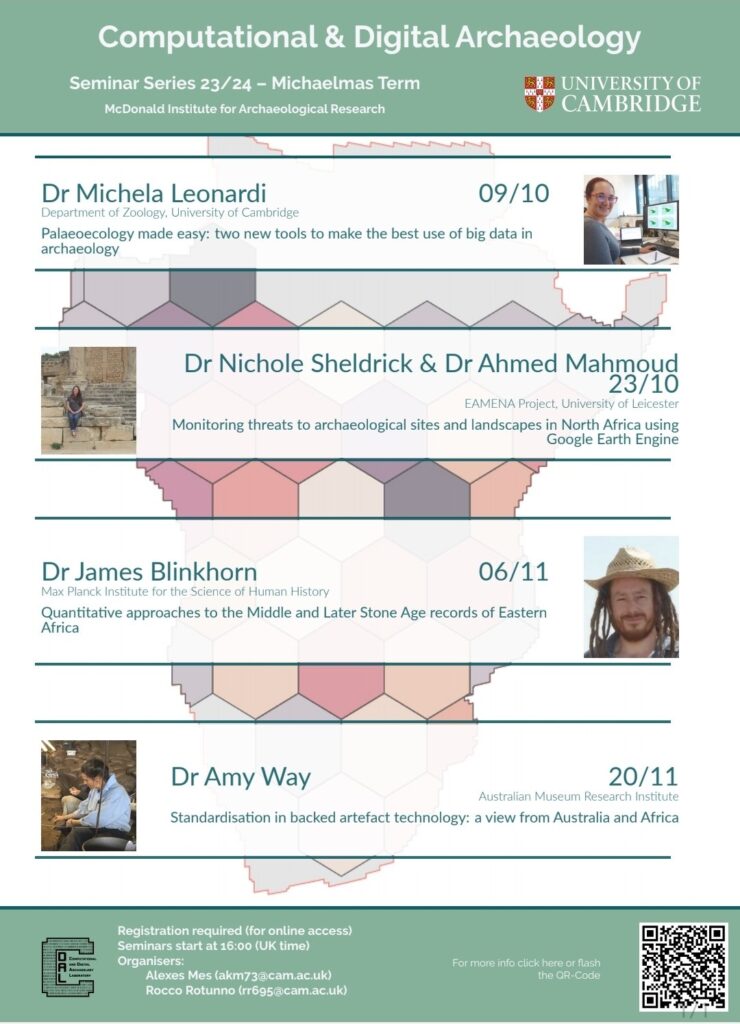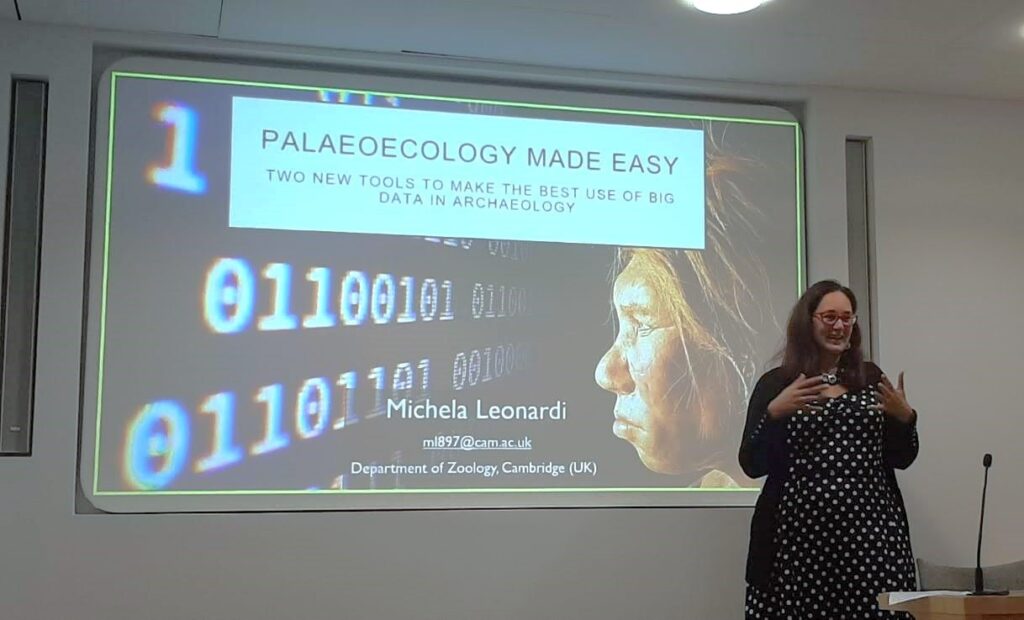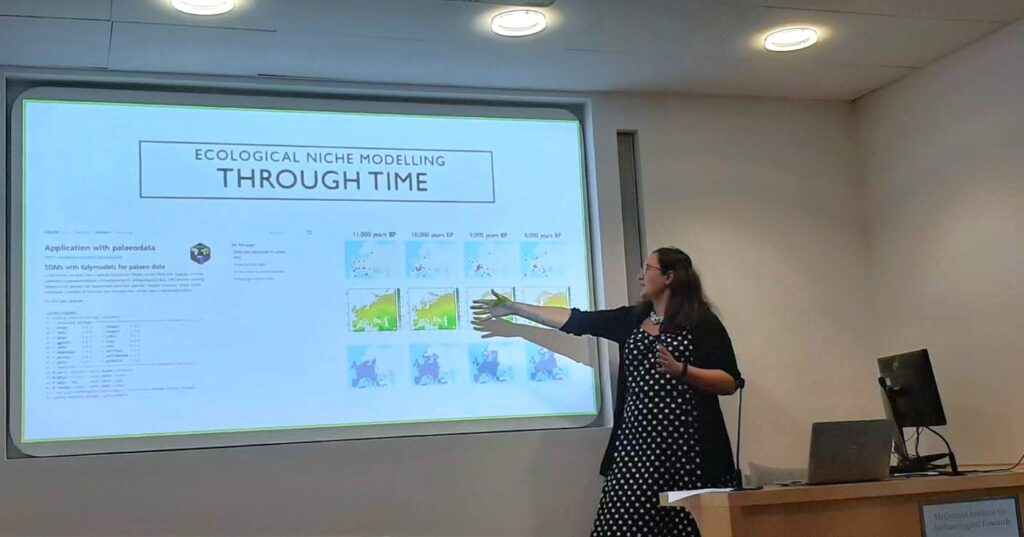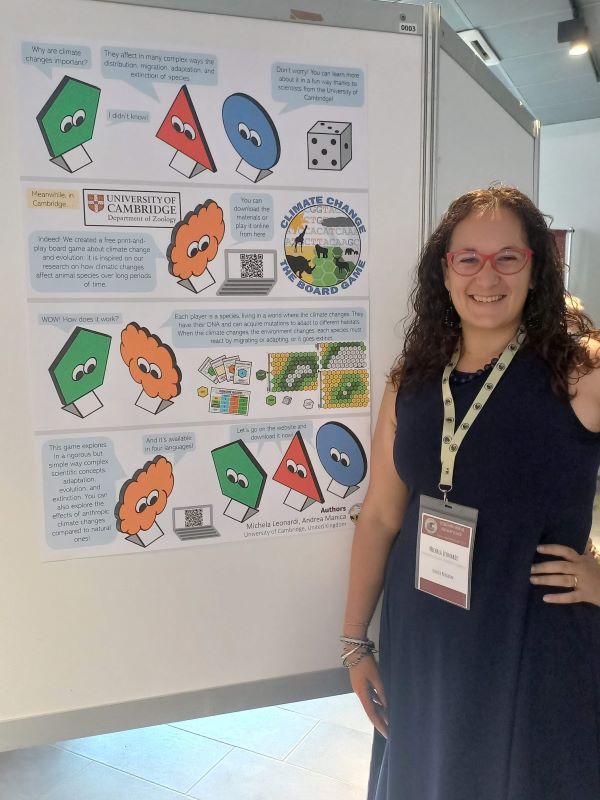If you are free today at 4 pm (UK time), join us for the first Computational and Digital Archaeology seminar of the term at the Department of Archaeology, Cambridge.
Palaeoecology made easy: two new tools to make the best use of big data in archaeology
Monday, 9 October, 2023 – 16:00 to 17:00 (UK time)

I will be talking about palaeoecology, #paleoclimate, and big data in archaeology. I will also present two new tools that I co-developed to make palaeoecological analyses easier: pastclim and tidysdm.
Abstract: In recent years, we witnessed the publication of both large datasets of archaeological occurrences and palaeoclimatic data series covering hundreds of thousands of years. This opened the door to new, exciting possibilities in the field of palaeoecology.
To make the best use of such data, I co-developed two new R packages that facilitate their use and allow simpler pipelines for their analyses.
The first package is pastclim. It is designed to easily access and manipulate climatic data and palaeoclimatic/future climate reconstructions. It contains a set of functions to recover the climate for time periods of interest, crop to specific areas, extract data from locations scattered in space and/or time, retrieve time series from individual sites, and manage the ice or land coverage.
The second package is tidysdm. The rationale behind it is to take advantage of the tidymodels framework in R to perform species distribution modelling (also known as habitat suitability/ecological niche modelling). This is the first software specifically designed to work with occurrences scattered in time, a task that with other tools, is either impossible or requires extensive tweaking. The integration with pastclim allows hassle-free access and handling of climatic data from the past, the present, and the future.
I will also present some applications of such tools, as an example of the new opportunities they could offer to scholars studying the past (e.g. archaeologists, archaeozoologists, palaeoecologists, palaeoanthropologists).
Event location: McDonald Institute for Archaeological Research Seminar Room
Join online: https://zoom.us/j/94826858436?pwd=N1JCeU9Id3dUdkJ4ZDVyUjhtQ0FMQT09
Event series: Computational and Digital Archaeology Laboratory Series
Update: a couple of pictures of my talk


























